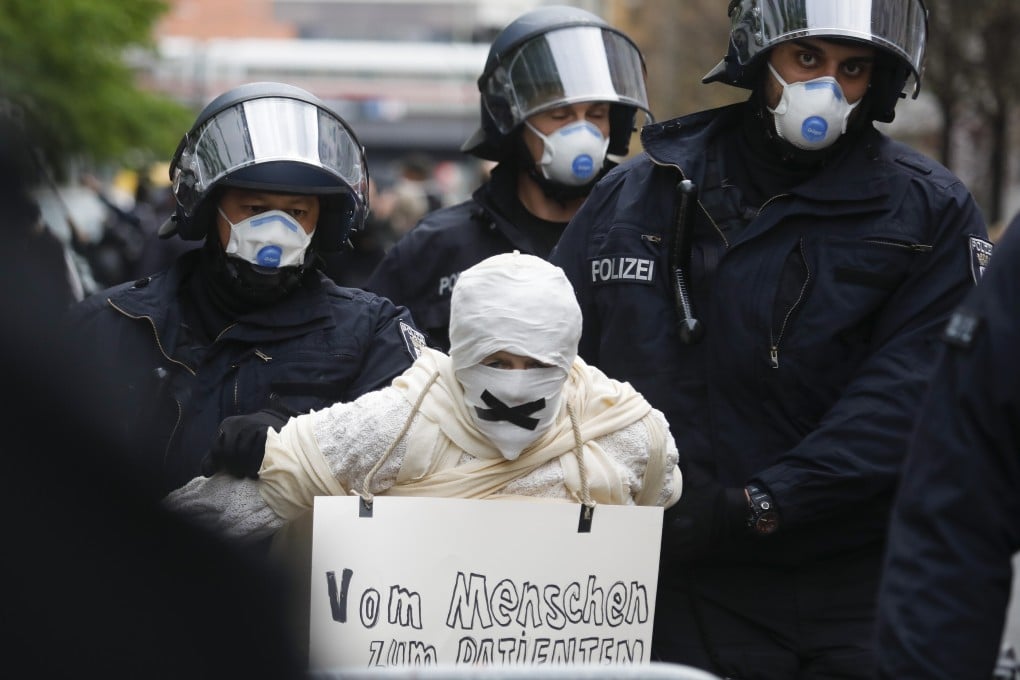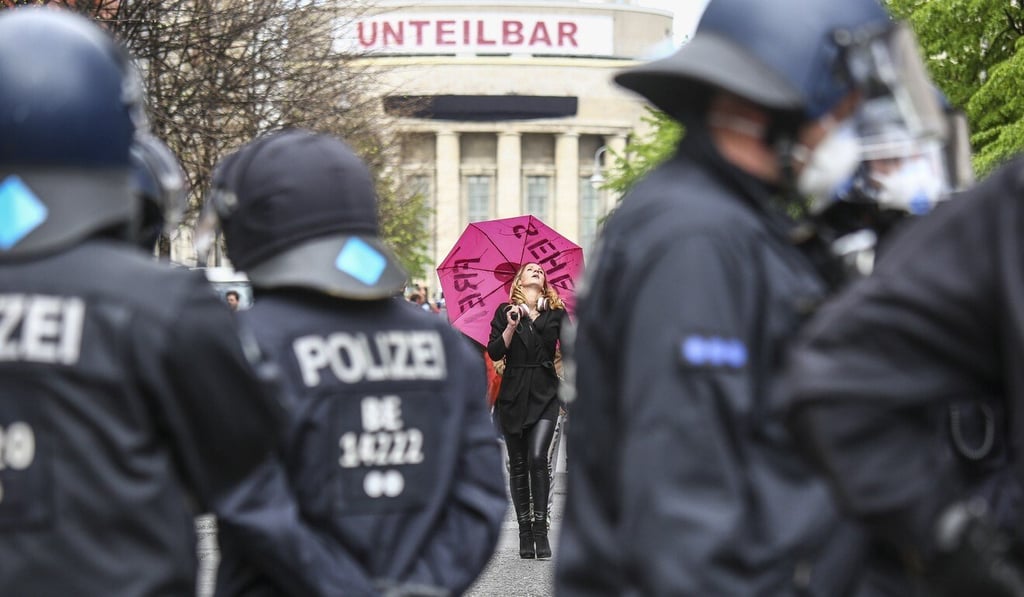In Germany, coronavirus protests bring people together – maybe too close
- People in Berlin defy social distancing rules to protest restrictions caused by the coronavirus
- Demonstrators have gathered at Rosa-Luxemburg-Platz square for several Saturdays

Authorities in Germany were bracing for further street protests in coming days after more than a 1,000 demonstrators in Berlin flouted Germany’s month-old coronavirus lockdown.
More than 100 people were detained and faced charges of assault, battery, bodily injury and resisting arrest at Saturday’s demonstration, in what was the biggest protest yet against the government’s sweeping Covid-19 restrictions that also outlaw such large public gatherings.
Nearly 300 police, many wearing protective face masks and riot gear, tried to keep the demonstrators physically separated from each other in accordance with the country’s strict anti-coronavirus regulations.
They clashed at times with a small handful of the more unruly demonstrators who had mingled among the mass of mostly peaceful participants in front of the Volksbuhne theatre at Berlin’s Rosa-Luxemburg-Platz square in eastern Berlin.

The protests – illegal because there was no advance permission granted and because gatherings of more than 20 are verboten – were a harbinger of potential trouble that could rock Berlin on Friday when the traditional May Day rallies that take place each year on May 1 sometimes erupt into leftist violence. Police are bracing for trouble in low-income central district quarters such as Kreuzberg even though demonstrations are banned this year.